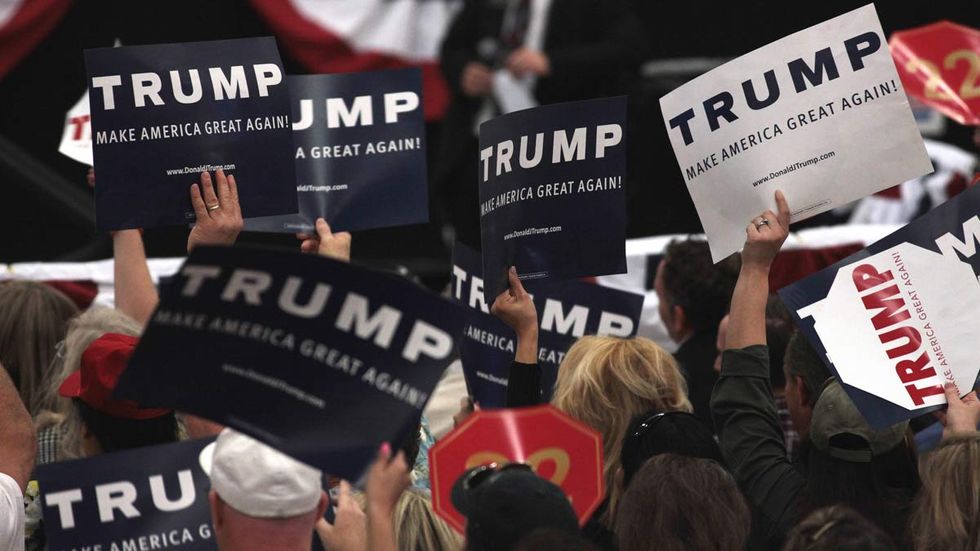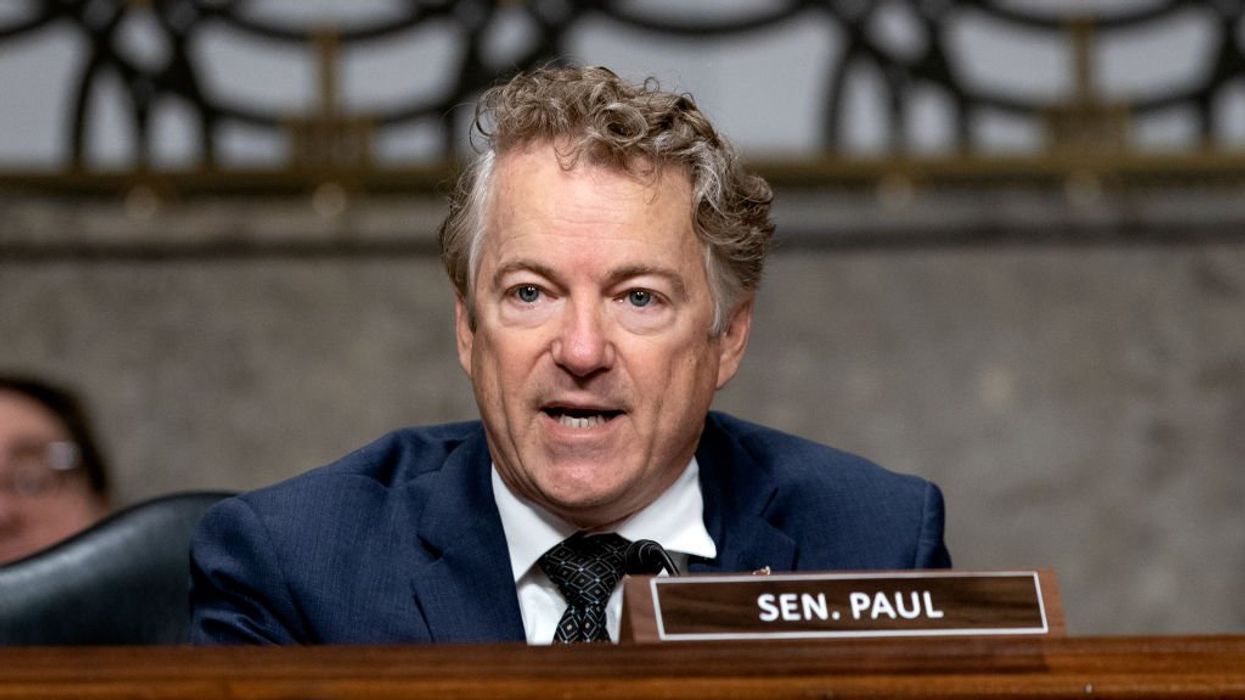
© 2024 Blaze Media LLC. All rights reserved.
Every aspiring politician must do two things to become and remain successful.
First, they must build a base of support. This is one of the hardest things to do. Just look at the last GOP presidential cycle. Seventeen candidates ran, including former and sitting governors and senators with a history of electoral success. But really only three of them — Donald Trump, Ted Cruz, R-Texas (A, 97%), and Marco Rubio, R-Fla. (C, 74%) — actually built a base capable of sustaining a national campaign.
Next, once that base is built, it must be maintained. If building a base is one of the toughest things to do in politics, losing it is one of the easiest. The mob is fickle on the one hand, and you're often pressured/incentivized by the system to betray that base on the other.
Trump's ability to build a base is one of the key things that got him here. Now his ability to maintain it will determine whether he gets to stay. But you can't maintain your base unless you really know who your base is, and Trump has one of the most eclectic coalitions we've likely seen in modern politics.
Will Donald Trump be the one to put rogue courts in their place?
Like Reagan, Trump's base is a three-legged stool. It's just a much different three-legged stool than the one Reagan had. Reagan created a three-headed conservative coalition of national defense, fiscal, and social conservatives largely driven by the same ideology, albeit with different priorities.
Trump's is a base of disparate priorities and ideologies. In many respects, it resembles the constituency model of the modern Democratic Party. Where fire and brimstone black ministers often will vote for the same candidates as homosexual activists like Rosie O'Donnell, all because they have a common need that binds them together — access to government.
Similarly, Trump's base is a triumvirate of groups who haven't always aligned with one another but now believe they need him. Despite their varying degrees of Trump devotion.
They are:
1. Trump cult
I'm not sure I've ever seen a politician build a stronger cult following than Trump, and that's saying something when you're coming out of eight years of Barack Obama. But Trump was correct when he said early in the campaign he could "shoot someone" and still not lose these people. These are people who embrace his shtick full throat for various reasons. Some of those reasons are messianic, and some of them are pure entertainment value. Nevertheless, Trump could literally take any position on any issue whenever he wants and not lose these people.
2. White evangelicals
Exit polls found Trump received an even heftier share of this vote than George W. Bush did, when white evangelicals were credited with his narrow victory in 2004. As someone heavily involved in mobilization of this group, I believe there are two primary reasons why they supported Trump so strongly last fall despite his checkered past. The first is Hillary Clinton let it be known throughout her campaign she would use government to declare war on their faith, which drove them to Trump out of self-defense. The other is judicial appointments, which was listed as the most important issue for one in five 2016 voters. And those voters went decidedly for Trump.
3. Rust Belt middle class
These are people who strongly supported Obama in 2008, and then again to a lesser extent in 2012, but then switched pretty decisively for Trump this time. Left behind by Obama's progressive authoritarianism, they agreed to what amounts to a marriage of convenience with Trump. Hoping he was the authoritarian that would empower government to address their grievances, instead of the leftist constituencies Obama catered to. While many conservatives are turned off by Trump's talk of tariffs and protectionism, they are emboldened by it. They see these as attempts to level the playing field, rather than a cost that will just be passed on to them as consumers when they next visit the big box store of their choice.
The first leg of Trump's stool wears concrete boots, and isn't going anywhere. However, the latter two are definitely capable of fleeing if Trump doesn't deliver for them.
If Trump doesn't protect religious liberty, for example, he will see a precipitous drop in white evangelical support in 2020. Plus it's unclear where he would go to replace those voters. Heck, he barely won with them. Likewise, if Trump is unable to bring jobs back to the Rust Belt, these voters, driven by economic need more so than ideology or cultural preference, will be back on the market. And they were the ones who tilted the Electoral College to Trump.
Therefore, it comes down to this: If Trump doesn't deliver for white evangelicals and middle class voters in the Rust Belt, he's likely toast in 2020 — provided the Democrats are capable of nominating a likable alternative.
Want to leave a tip?
We answer to you. Help keep our content free of advertisers and big tech censorship by leaving a tip today.
Want to join the conversation?
Already a subscriber?
BlazeTV Host
Steve Deace is the host of the “Steve Deace Show” and a columnist for Blaze News.
SteveDeaceShow
more stories
Sign up for the Blaze newsletter
By signing up, you agree to our Privacy Policy and Terms of Use, and agree to receive content that may sometimes include advertisements. You may opt out at any time.
© 2024 Blaze Media LLC. All rights reserved.
Get the stories that matter most delivered directly to your inbox.
By signing up, you agree to our Privacy Policy and Terms of Use, and agree to receive content that may sometimes include advertisements. You may opt out at any time.



